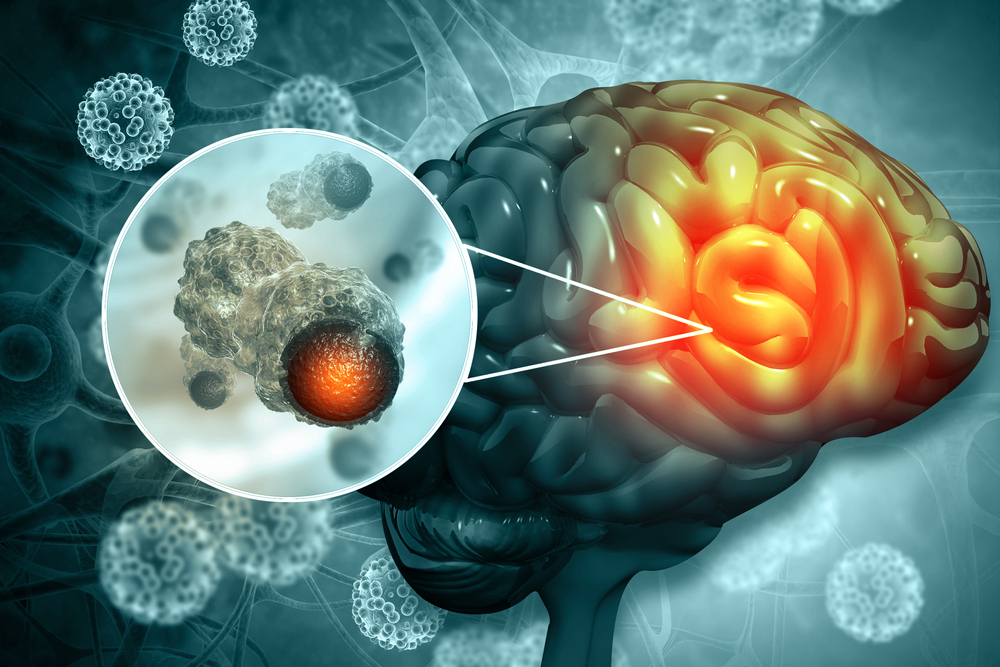Know About the Treatment Options for Brain Tumour

Overview
Compared to other cancers, brain tumours are less prevalent in India. The brain is one of the most complex and vital organs in the body. Hence, treating brain tumours is often challenging. Due to the latest advances in medicine and surgery, treatment for brain tumours with good outcomes is possible. A patient’s detailed medical history and understanding of brain tumour type enable the multidisciplinary team of doctors to determine the best possible brain tumour cure.
Introduction
The growth and uncontrollable multiplication of brain cells result in a brain tumour. Early detection and prompt treatment are essential to improve treatment outcomes in the case of challenging tumours such as brain tumours. They can affect children and adults and can be benign or malignant (cancers that spread).
Brain tumours can be classified based on the origin of cancer and the type of cell that turns cancerous.
Based on the origin, brain tumours can be:
- Primary
Tumours that begin in the brain are called primary brain tumours.
- Secondary
When cells from cancers in other parts of the body, such as breast or lung cancer, spread to the brain via the bloodstream and result in a tumour, they are called secondary brain tumours.
Based on the type of brain cells that turn cancerous, brain tumours can be of the following types:
- Meningioma
- Medulloblastoma
- Schwannoma
- Neurofibroma
- Osteoma
- Astrocytoma
- Oligodendroglioma
- Ependymoma
- Glioma
- Astrocytoma
Most primary brain tumours are gliomas that arise from supportive neuronal cells. Based on the progression of the condition, brain tumours can be staged and graded, where grade I tumours are less aggressive, and grade IV is highly aggressive with malignant potential.
Brain tumour treatment options
Standard treatment for brain tumours usually includes surgery, chemotherapy and radiation therapy. Other treatment options that may be used include targeted drug therapy.
Your treatment for a brain tumour depends on the following factors:
- The type of brain tumour
- Location of the tumour in the brain
- Stage and grade
- Extent of spread
- Presence of genetic mutations in the cells
- Your overall health and fitness
- Surgery
Surgery is one of the most standard treatments for a brain tumour and may be recommended for one of the following reasons:
- To remove the entire tumour
- To remove as much of the tumour as possible
- To take a biopsy and study the type of cancer cells
- Drain the fluid buildup in the skull
This is usually the first line of treatment for brain tumours and is performed by a skilled neurosurgeon. There are different types of surgical approaches for the removal of the brain tumour as follows:
- Craniotomy
- Neuroendoscopy
- Awake brain tumour surgery
- MRI-guided laser ablation
- Neuroplastic surgery
- Biopsy
- Radiation treatment
Radiation therapy uses high-speed X-rays to kill cancer cells and slows down brain tumour growth. There are different types of radiation therapies available, and your doctor will select the most suitable one for you.
- External beam radiation therapy
This is the most common type of radiation therapy used to treat brain tumours. An external source of radiation is used to target radiation to the tumour. This is the preferred choice of radiation for metastatic brain tumours, especially when there are several metastatic areas throughout the brain. As this conventional form of radiation therapy affects healthy tissues, its side effects are more.
- Stereotactic radiosurgery
This radiation therapy uses smaller and more targeted X-ray beams that cause minimal damage to healthy tissues around a tumour. This is preferred for brain tumours located near sensitive structures or difficult to reach.
- Proton beam therapy
This type of external radiation therapy uses high-energy protons to kill cancer cells. Compared to conventional radiotherapy, proton beam therapy is accurate and precise and causes little or no damage to surrounding healthy tissues. As a result, this type of radiation therapy is highly suited for tumours located in difficult-to-reach or sensitive areas of the brain.
Though radiation therapy is brain tumour treatment without surgery, it is rarely used alone.
- Chemotherapy
This treatment for cancer uses advanced drugs that identify cancerous cells and kill them. Chemotherapy is usually performed after surgery to prevent the recurrence of cancer and brain tumours that have recurred after previous treatment. Chemotherapy can be localised or systemic.
In several cases, a combination of chemotherapy and radiation therapy may be used before surgery (neoadjuvant therapy) to shrink the size of a tumour and facilitate easy surgical removal. In some cases, chemotherapy and radiation therapy are used together after surgery, called adjuvant therapy, to reduce the risk of cancer recurrence. Your doctor will determine the right chemotherapeutic drugs for your brain tumour.
Seeking a second opinion
Being diagnosed with cancer can be overwhelming. It is natural to feel anxious and worried about your diagnosis and make the right treatment choice. If you are unsure about your treatment plan or wish to get a different view from another specialist, seek a second opinion.
Getting a second opinion is a standard practice in cancer care, and your doctor will understand your need for it. For a second opinion, book your appointment with the top neurologists in India right here at Medanta. Call us now!
Conclusion
Treatment for brain tumours is challenging, but with the latest technological advances in medicine and oncology, most patients can lead healthy and fruitful lives post-treatment. The success of your brain tumour treatment depends upon several factors, including your overall health. If you have been diagnosed with a brain tumour, visit our top neurology experts for a comprehensive treatment approach.






